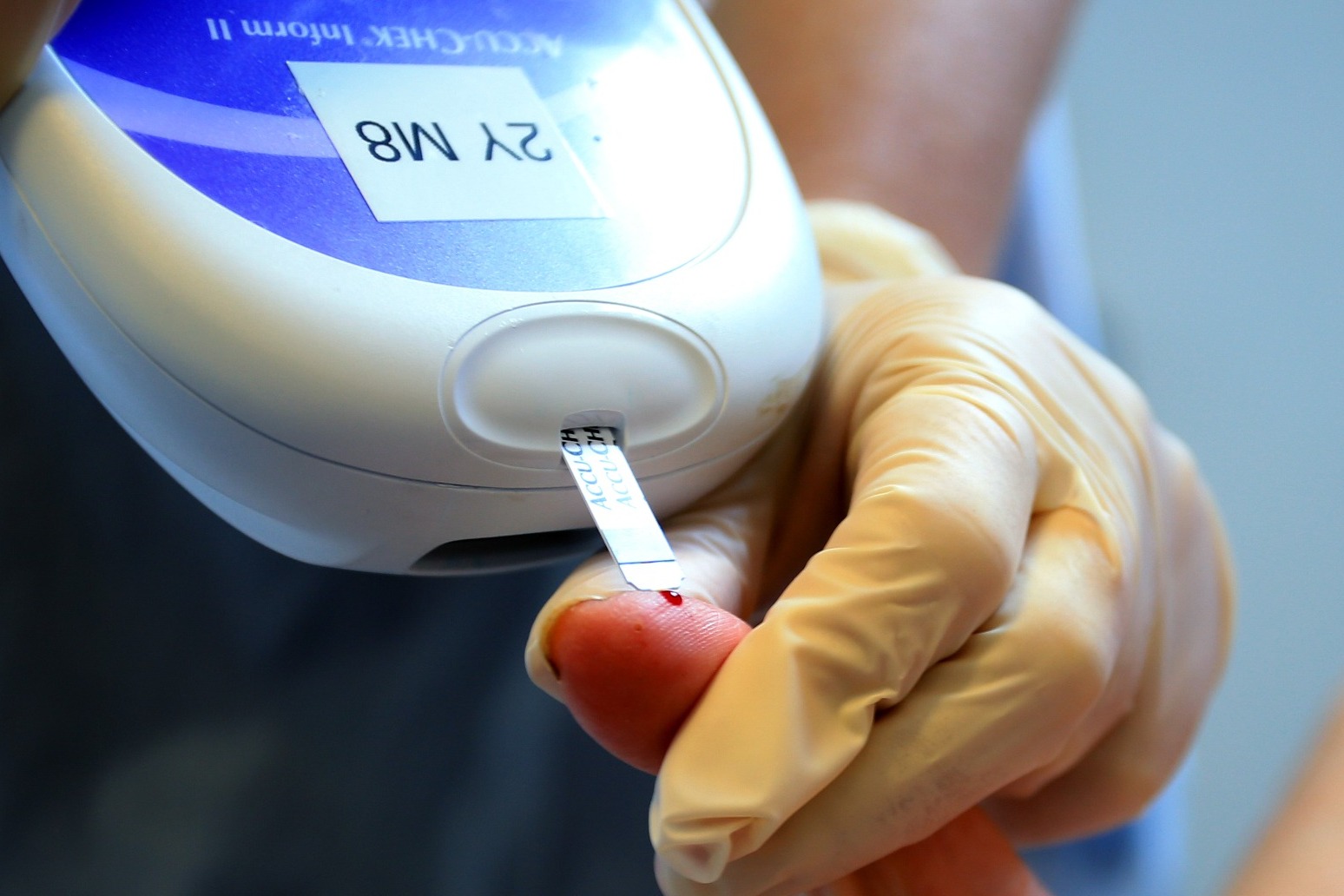
Type 1 diabetes patients in England to get wearable blood sugar level monitors
All patients with Type 1 diabetes in England are to be offered wearable technology which enables them to monitor their blood sugar levels in seconds.
The wearable monitor, the size of a £2 coin, sit on a patient’s arm and constantly checks their glucose levels.
With an app, the user can scan the monitor in a second and get a reading which tells them whether or not their blood sugar levels are at an appropriate level.
The app also means that patients can monitor their glucose levels over time so they can easily spot any worrying trends.
The monitors are to be rolled out to all patients with Type 1 diabetes in England when previously only three in five were eligible.
Type 1 diabetes is an auto-immune condition which cannot be prevented and accounts for about 8% of all diabetes cases.
So-called flash monitoring helps to improve blood glucose levels in people with Type 1 diabetes, and also has a positive effect on their quality of life, accord to a study presented at the Diabetes UK Professional Conference 2022 this week.
The announcement from the NHS in England follows approval from the National Institute for Health and Care Excellence (Nice), which said that the wearable tech reduces the need for finger-prick testing by up to 50%.
Nice said that 250,000 people will benefit after it recommended the use of real-time continuous glucose monitoring for all adults and children with Type 1.
Previously the health body had only recommended that certain groups had access to the kit.
Diabetes UK said that the decision were “transformational” for people with the condition.
Chris Askew, chief executive at Diabetes UK, said: “These landmark guidelines promise to be transformational for people living with diabetes.
“What we are seeing today is a key shift in thinking – a move to recognising that technology is an integral part of diabetes management, not simply an added luxury.”
Dr Paul Chrisp, director of the centre for guidelines at Nice, said: “By recommending the use of either real-time or flash monitoring, our independent committee has made recommendations that will be a step forward in helping all people with Type 1 diabetes manage their condition.
“Many people find finger-prick testing to be painful and time-consuming and the introduction of technology for all people living with Type 1 diabetes will reduce this considerably.
“This group of people also live with the constant worry of suffering from an attack brought on by dangerously low blood sugar while they sleep. Having an alarm, which will alert them if this happens, will give them the peace of mind knowing they will wake up in the morning.”
Professor Partha Kar, national NHS specialty adviser for diabetes, for the health service in England, added: “This announcement is the biggest step forward for Type 1 diabetes care in years, allowing everyone eligible to have one of these easy to use pieces of tech if they want to – building on the success of the NHS in its roll-out so far. I am delighted to see Nice endorse the use of this technology.
“These monitors are a win win – they support diabetes patients to live healthier lives, reduce their risk of hospitalisation while also helping to reduce pressure on NHS services and provide better value for money for taxpayers.”
It comes as another study published at the Diabetes UK conference found that artificial intelligence (AI) can help spot children with previously undiagnosed Type 1 diabetes.
The charity said that a quarter of patients are not diagnosed until they present with potentially life threatening symptoms of diabetic ketoacidosis and the new predictive tool could help reduce this number.
The tool has been trained to spot patterns in a children’s health record such as urinary infections, bedwetting and a family history of the disease.
It was tested again data on GP records of 2.5 million children and successfully identified 75% of children who would go on to develop type 1 in the following 90 days.
Published: by Radio NewsHub